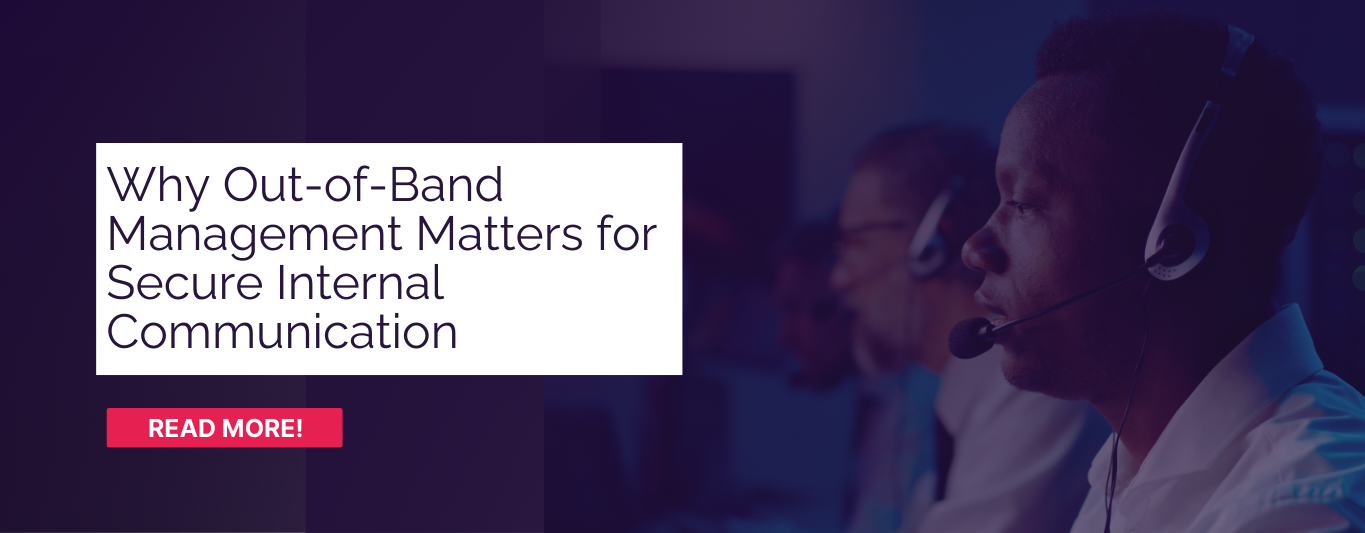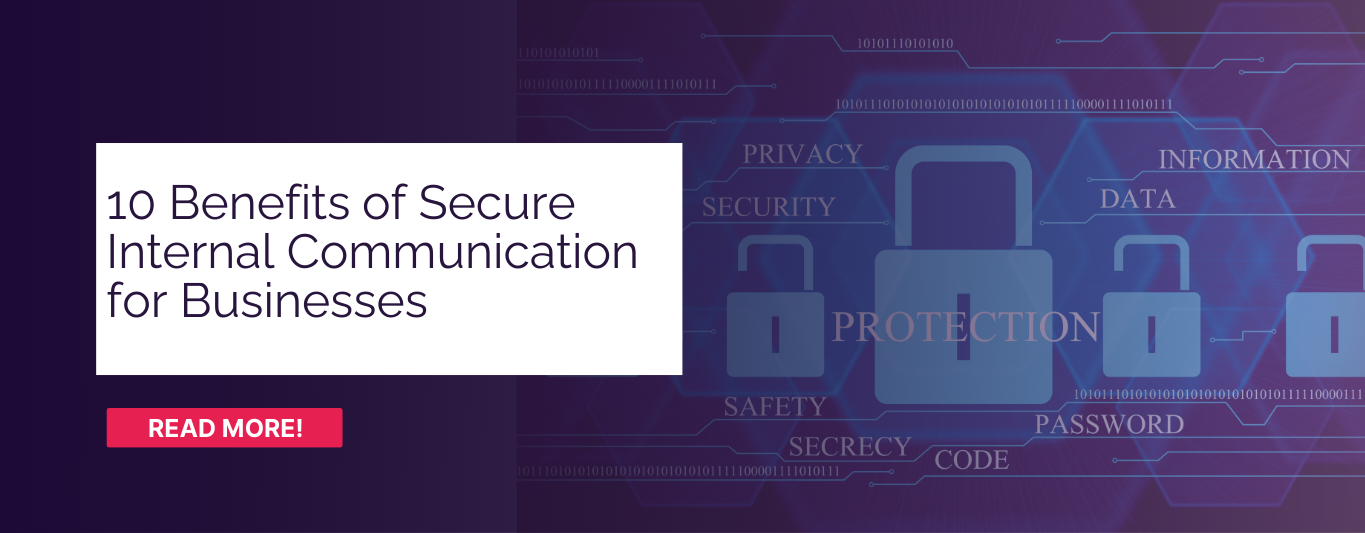Is Secure Data Transfer Possible in 2022?
%20(19).png)
Over the last few years, companies have been working to become more data-driven with mixed results. These efforts play out over time in organizations, with persistence, resilience, execution, and a relentless drive to employ data helping them make more informed business decisions. The COVID-19 pandemic, and the disruption it caused, raised awareness of the importance of data, science, and facts.
With data consumption happening from everywhere, this creates a headache for organisations now working with a hybrid or fully remote model. Being able to maintain data privacy and protection is a challenge with a workforce outside of traditional working environments. Can secure data transfer still be achieved in 2022 because of this and if not, what do organisations need to do?
As secure communication experts at RealTyme, we are concerned many companies still rely on consumer-built platforms and apps to collaborate in the workplace. We’ve highlighted before the risks of relying on WhatsApp and Facebook Messenger, as well as other messaging apps for communication and collaboration. As they are not built with privacy by design and use a consumer business model that, whilst free to use, trades your private information and data for advertising revenue, the risks of data being breached or falling into the wrong hands have never been so high.
With our secure communications platform, we provide what many popular consumer apps cannot – full data sovereignty and privacy by design. We ensure all communication, data, video, and voice calls are only accessible by those with invite-only access thanks to private circles, using E2EE at transit and at rest as well as a minimal data footprint with completely private metadata.
Data Transfer Concerns
If businesses aren’t considering whether they could be in breach of data protection and their industry’s compliance regulations, the penalties can be tough and the consequences for brand reputation are high. It’s not just the use of consumer apps for collaboration that can cause an issue, as email is still a popular method to communicate and transfer data. The risk of business emails being compromised is very high, meaning any data sent in this way can be extremely vulnerable.
Business email compromise (BEC) is on the rise and saw a 65% increase in this type of scam in the period between July 2019 and December 2021. With advancements in technology and more convenient ways to communicate, comes more sophisticated and targeted cyberattacks from malicious third parties. This includes identity theft using fake emails that contain malicious sources which are easy to create via a similar email address hosted by hostile parties. The content attached to the email can be copied onto mail servers, which when compromised, can lead to hackers having the entire data set and not just the context.
Other alarming statistics include 53% of companies are leaving over 1,000 sensitive files and folders unencrypted and available to all employees, whilst 65% of enterprises do not know where sensitive data is stored across multiple cloud solutions. When it comes to protecting your interests as well as your clients, following poor secure data transfer best practices is surprisingly high despite the known risks.
Secure and Safe Data Transfer – Best Practices
Being able to work securely and collaborate without fear of breaching data is necessary for organizations. Your teams need to be able to work efficiently without this worry, so providing the tools they need to work safely and securely whether remotely or in an office environment is essential.
Use encryption – not using any form of encryption is widespread, with as many as 83% of organizations failing to encrypt half of their sensitive data that they store in the cloud. This leaves a window of opportunity for malicious third parties. At RealTyme, all data is secured using end-to-end encryption both at rest and in transit by default. This ensures no-one apart from the intended parties can read the data, keeping all files and communication secure on every end-point device and data is deleted from the servers. Rather than have E2EE buried within the settings such as with many consumer apps, this is used as default along with strong authentication.
Don’t use email to transfer files – using email to send sensitive documents leaves your organization at risk. With ransomware attacks becoming more commonplace, keeping your most sensitive data away from email servers is recommended. At RealTyme we are all about data minimization, meaning any information including messages and files are deleted from our servers immediately after delivery. This ensures only those intended to see the data have access to it and that this data is not kept or stored within RealTyme servers indefinitely. Each user has access to a private container where they can organise and secure files safely and access them when they need them. Privacy controls mean data can be automatically deleted after a customized timeframe too.
Eliminate sending files to the wrong person – one of the biggest risks with file sharing is human error, so being able to eliminate common issues like file-sharing to the wrong person is essential. With many outdated methods still used to share data such as email, USB devices and paper, the risk of these ending up being sent to unintended parties is still high. Secure methods of data transfer will eliminate this risk. At RealTyme, as we use private circles with invite-only access, only those authorised to see the data can access it and be sent it. No more accidentally sharing data or a link to everyone in your contacts list.
Have complete data control – many companies may use third-party consumer-based cloud providers that do not provide full control. Consumer-grade file-sharing options are used by companies for their convenience; however, it means sensitive data will be shared through them that leaves organizations at risk of being in breach. This lack of control for admin and IT departments should worry most companies. At RealTyme, this issue is removed as we provide full data sovereignty for companies so that they stay within their own internal policies and take back control of their data. We can help deploy this fully on a private cloud as well as on-premises.
Treat All Data Securely with RealTyme
The risks are extremely high, so organizations that implement the most secure way to transfer files will be best placed to avoid running into problems. Secure and safe data transfer should be a minimum requirement in 2022 for a business that is aware of the issues and wants to protect both client confidentiality and its reputation.
The RealTyme platform is full of advanced data security and privacy protections that every business needs. To find out more about how we can ensure secure data transfer using the latest encryption technology, cryptography, and data privacy techniques, contact us today. Request an invite or speak to sales and we’ll be happy to provide a demo of how the platform can help your company’s approach to secure collaboration.



